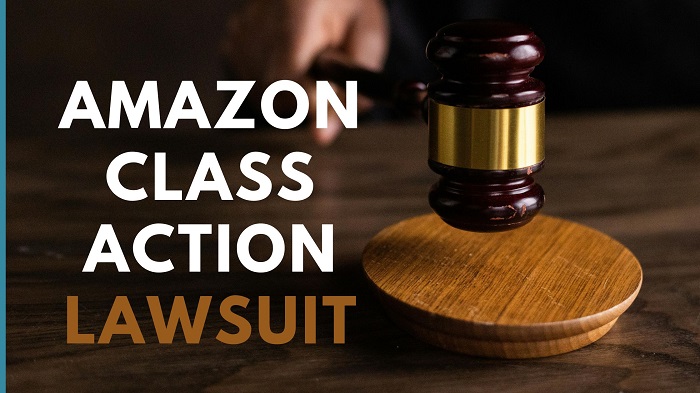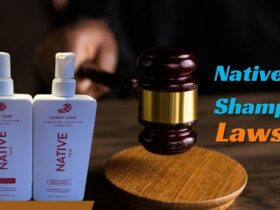Big organisations, especially multinational companies often find themselves in the middle of controversies followed by lawsuits. The bigger the company is, the more complications it faces regarding regulatory practices. Amazon, one of the world’s most popular e-commerce and technology companies, frequently finds itself at the centre of legal and regulatory scrutiny. Over the years the company has faced several class-action lawsuits, from employee grievances and anti-competitive practices to consumer grievances. These legal issues have impacted Amazon’s business practices to a great extent. If you are still unaware of these types of legal issues and their implications, it is high time you learn about them. This article will let you know all the necessary aspects of the Amazon Class Action Lawsuit and what it means to the industry and the consumers. So, stay tuned till the end.
What is a Class Action Lawsuit?
Before we dive deeper into the lawsuit faced by Amazon we need to know the nature of class action lawsuit. This will provide you with a better understanding of the ongoing situation. A class action lawsuit is basically a legal action where a group of individuals with a similar interest brings a case together against an accused. They also typically represent a larger group of people with the same complaints. This type of legal structure allows common people with complaints to gather resources and seek justice where pursuing individual lawsuits might not work. The class action suits against Amazon have stemmed from issues like alleged violations of consumer rights, workplace conditions, monopolistic practices, and breaches of privacy and security. Check out the claims Amazon has faced over the years and created a situation for class action lawsuits.
Claims of Amazon Class Action Lawsuit
Amazon has faced not only one but several class-action lawsuits over the years. Let’s start with the most recent one and check out the others one by one.
Complaint Over Prime Video Ads
A recent class action against Amazon’s Prime Video claimed that the platform had misled its subscribers. Initially, the Prime Video streaming platform was ad-free and it used to be in a package with Amazon’s Prime membership. However, in early 2024, Amazon added advertisements to Prime Video by default. It also introduced an option for ad-free streaming which is, however, not free of cost. Users have to access this service with an additional $2.99 per month.
The lawsuit argues that Amazon’s shift to a paid ad-free option violates consumer protection laws and breaches contracts. Subscribers complained that they were already paying for ad-free streaming as part of their Prime membership. The platform should not charge extra to maintain that benefit they promised previously. They added that Amazon’s action is deceptive and breaks the trust of the users. The lawsuit demanded $5 million in damages and a legal injunction to stop Amazon from implementing similar changes in the future.
Complaint on Monopolistic Behaviour
The monopolistic business tactics of Amazon have brought the company a major backlash and led the company to become involved in several class action lawsuits. In 2023, Amazon faced a major lawsuit regarding the application of anti-competitive tactics to maintain its monopoly in the market. This resulted in price rises for consumers and uneven competition for other businesses in the same industry. According to this lawsuit claim, Amazon was harming both consumers and smaller businesses by using its control over online marketplaces, cloud services, as well as logistics.
Employee Rights Issues
Apart from the consumers, Amazon has also faced lawsuits from its employees regarding workplace conditions and employee rights issues. The company did not provide proper wages in return for the time and service of the workers. In 2020, Amazon faced a class action suit over unpaid wages. Employees claimed that the company did not compensate them for the time they spent undergoing security checks. This is a practice that allegedly violated wage and hour laws.
Data Protection Issues
With the introduction of Amazon Alexa and Ring security cameras, data privacy concerns have increased significantly. There were allegations that Amazon’s data management practices negate customer privacy rights. Some lawsuits claimed that Amazon collects voice data from Alexa devices without the consent of the users. In 2019, Ring customers filed a class action lawsuit against Amazon, claiming it exposed users to unauthorized access and even potential hacking creating privacy and security risks.
Outcomes and Implications
The frequent class action lawsuits against a large organisation like Amazon have widespread implications. Here are some of them.
Empowerment of consumers and Employees
One of the major benefits of class action lawsuits is that consumers and employees can seek proper justice against large corporations. It provides a platform for consumers and employees to hold corporations accountable. The cases against Amazon showed how collective legal actions can make major companies address grievances that they might ignore otherwise.
Implication to the industry
Amazon’s class action set examples for broader retail and technology industries that are now treating these types of issues with caution. For example, lawsuits regarding Amazon’s monopolistic business process have encouraged other tech companies for greater scrutiny of. In the matters of privacy, lawsuits involving Alexa and Ring have raised awareness about data collection practices. This situation has increased the demand for stricter privacy regulations across the industry.
Changes in Business Procedures
Being engaged in several lawsuits over the past few years has prompted Amazon to modify its business practices The Company has brought some major and minor changes in areas of data privacy, consumer transparency, and employee welfare. The improvement in the working conditions of the warehouses is also the result of these legal complications.
Frequently Asked Questions (FAQs)
What is the claims of recent class action lawsuit against Amazon Prime Video?
The lawsuit claimed that the streaming platform has breached the regulation by including advertisements to the videos. The company previously promised it to be an add-free platform with the subscription of Amazon Prime. This broke the trust of the users.
How did Amazon respond to these allegations?
Amazon has not responded about all these claims publicly as of now.










Leave a Reply